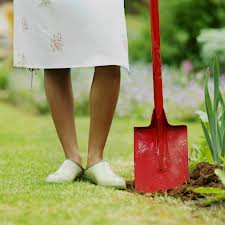 Money-saving tips for gardeners
Money-saving tips for gardeners
Source: http://www.theguardian.com/money/2011/may/07/money-saving-tips-for-gardeners
Gardens can cost a small fortune or almost nothing at all. The thread running through all good gardens is love. Someone, somewhere, cares about them dearly because the best gardens have hours of effort poured into them. Money can buy you short cuts, expensive garden furniture, fountains or a designer, but not necessarily taste.
Which is a godsend, because, unlike to so many other parts of our society, the garden is a leveller. We can all have a wonderful space on whatever budget we have to hand. Like any other shopping experience, impulse is a sure way to strip your purse bare. Garden centres know this, which is why there are always lovely pots of colour by the entrance, or two sizes of the same plants, so that the smaller one instantly looks inferior. Go knowing what you want, and stick to it – and make sure you actually have space for all those plants.
It’s not rocket science: you pay for the grower’s time, so the bigger the plant, the more it will cost. Plants in flower are more complicated to transport, so you pay for that, too.
It is not always the case that a bigger plant is better, though. A sapling can quickly catch up with the pot-grown semi-mature tree because it can adapt to its conditions better. Larger plants, be they trees, shrubs or perennials, needs a lot more care and water to get through the transplant phase.
The garden centre is a one-stop shop which makes it convenient, and there can be good advice on hand. However, the internet has changed the game; everyone from rare plant nurseries to Polytunnel suppliers is offering their wares. Search around and there are some extraordinary bargains – eBay is fantastic for gardening. I’ve found it particularly useful for garden furniture, both new and secondhand, so it is worth having a look online first. Look for pick-ups only, and you’re sure to find bargains.
Car boot sales are also great at this time of year, particularly for cheap young plants such as vegetables and secondhand tools – 1950/60s forks and spades are worth seeking out and can be picked up for less than a tenner. The equivalent quality today will set you back £50-£70.
Pound stores, Lidl, Aldi, Wilkinsons and the likes often have fantastic deals on gardening sundries and plants. It’s not always cheap and cheerful, either. All offer value seed. For well-known varieties of flowers and vegetables there are often huge savings by buying budget brands.
It goes without saying that seeds in general, even if you buy the most expensive brand, are always going to be cheaper than nursery-raised plants. For instance, I bought a packet of foxgloves for 50p. I have around 35 young plants. If I were to buy them a month hence they would cost at least £2 a pot.
Of course, I haven’t factored in my own time, but that’s a dead-end argument: I look at those foxgloves and feel immensely satisfied – and that’s not just about money.
Most garden centres have a “basement bargains” area hidden towards the back. I have found some gems here. You need to like rescue projects, as these are plants without leaves, with liverworts growing over their compost, with missing labels and broken pots. If you’re naturally green fingered, the bargain corner is your spiritual home.
Lawns can drink money, particularly if you want bowling green perfection. However, if you can take a more relaxed view, most old lawns can be overhauled for very little.
A good pair of edging shears, regular mowing so that it doesn’t get too long, and a de-thatch once a year with a rake will do wonders. Taking your mower for a yearly service will mean you can keep the same one going for years.
If you do have to buy a new mower, look out for a “mulcher” which recycles the grass clippings on to the lawn so that you don’t have to feed it with artificial fertilisers.
The only area where I rarely skimp is on good compost. I buy the best quality peat-free I can get. Buy cheap compost, and you often get rough material that is hard to start off seeds in and smells as if it’s still composting. Good compost is money well spent at the early stages.
